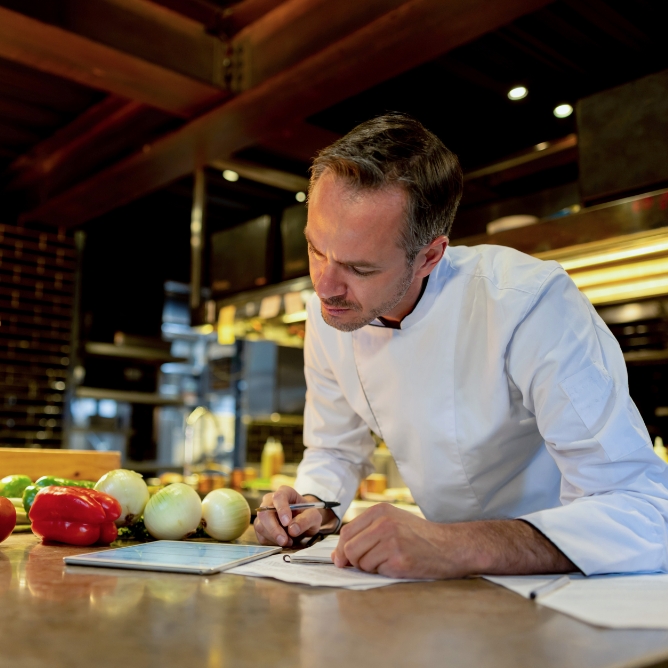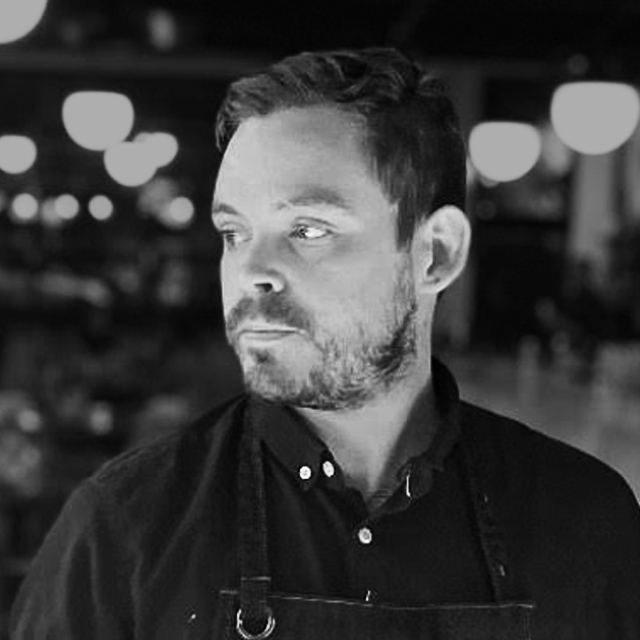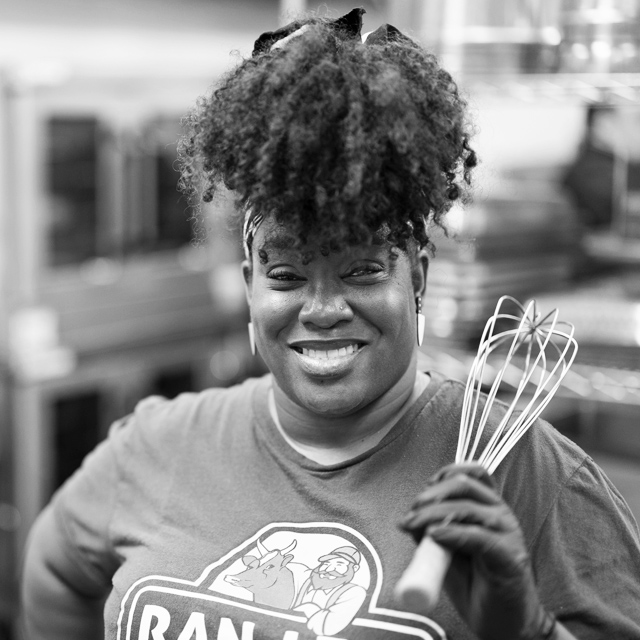SCOTT
CRAWFORD
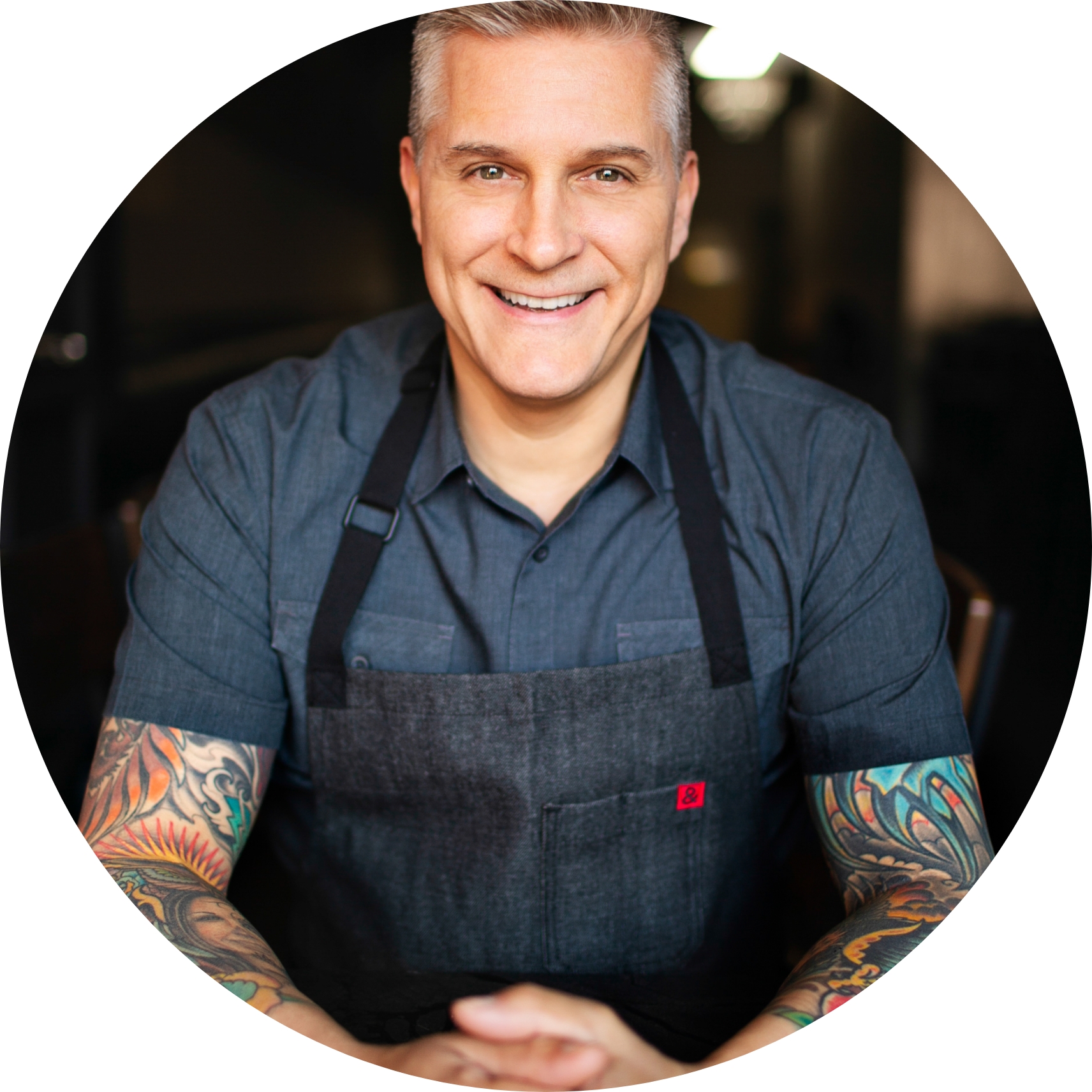
owner,
Crawford Hospitality
cRAWFORD’s career path
- Busser
- Dishwasher
- Server
- Line Cook
- Exec. Chef/Food & Beverage Director
- Chef/Owner
Scott Crawford’s Recipe for Success: Keep Learning and Evolving
The visionary behind Crawford Hospitality pursued many roles throughout his career and continues to build his skills.
Scott Crawford stumbled into the restaurant industry so he could support himself through college. It was the perfect fit for his Florida beach lifestyle because he could surf during the day and bus tables or wash dishes at night. He earned a server position but took a pay cut to work alongside his friends in the kitchen as a line cook. It was there that he made a life-changing discovery.
“The light bulb kind of went off in my head and I realized, this is what I should be doing. I was enjoying it much more than school,” Crawford says.
Since then, his culinary pursuits have taken him to fine dining restaurants in San Francisco and to luxury hotels and restaurants in Charleston, South Carolina, and Raleigh. Today, he’s the chef/owner of three Raleigh-based restaurants: Crawford & Son, Jolie, and Crawford Cookshop. He’s expanding Crawford Hospitality to include three new projects opening later this year and in 2024: Brodeto (a celebration of the Adriatic Coast), Crawford Brothers Steakhouse (a modern American steakhouse) and Crawford Genuine (in the Raleigh-Durham International Airport).
The numerous accolades attached to his apron include the Forbes Travel Guide Five-Star award for several luxury hotel properties across the Southeast and winner of Bravo TV’s “Recipe for Deception” in 2016. He’s also a five-time James Beard Foundation semifinalist for Best Chef: Southeast.
Underneath that heavily lauded apron is a humble chef, husband and father who still finds satisfaction in the simple act of washing dishes.
But underneath that heavily lauded apron is a humble chef, husband and father who still finds satisfaction in the simple act of washing dishes. He cares about the mental and physical health of his staff and strives to treat them fairly and respectfully. He remains loyal to a tight-knit group of friends from his early restaurant years, and he loves the hospitality industry because he’s constantly learning from it.
Here’s part of a conversation about how hospitality has shaped him and what he’s learned through the years.
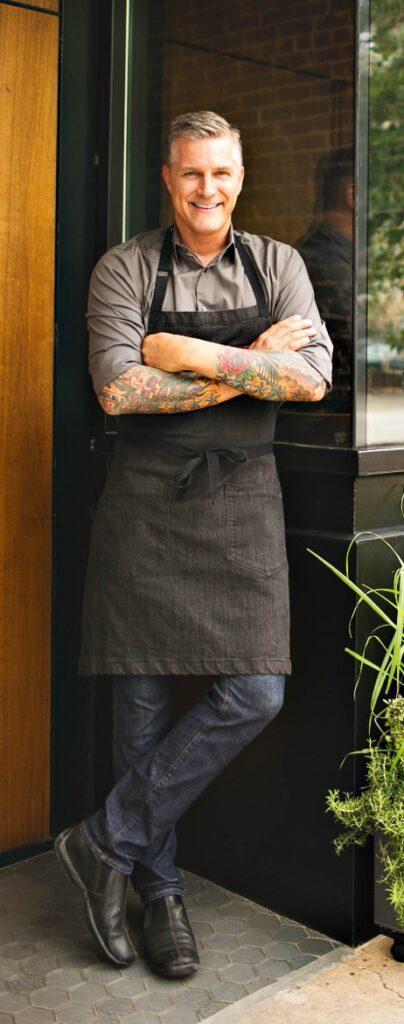
Q: Why did you enjoy working in restaurants so much?
A: The thing I loved about restaurants at that time was that they welcome everyone. Wherever you are in life, whatever your background is, whatever level of education you have, it really doesn’t matter. If you’re willing to work hard and have a hospitality heart and come in and serve others, the industry welcomes you. And I thought that was great because I really wanted to get a college degree but had no idea what direction that would take me. And restaurants were always there for me, for not only an income but also peers. People I met 30 years ago I still stay in touch with.
When you work with great people, people you truly enjoy working with, and you’re creating these memories for people in your community, there’s magic there.
Q: What is it about working in this environment that makes it so conducive to forming such close and lasting bonds?
A: It’s an intense environment. But when you work with great people, people you truly enjoy working with, and you’re creating these memories for people in your community, there’s magic there. And I think whenever you create some magic with people, there’s a certain bond that happens and it stays with you.
Q: Is the magic knowing that you gave customers a great experience for the time they were with you?
A: Sure. We’re a part of celebrating people’s very special occasions … or maybe we’re just nourishing people on a Tuesday. They want to come in and experience some beautiful, seasonal food. Whatever it is that we’re providing, whether it’s nourishment or just a quick night out or a big celebration of a special occasion, there’s a memory there.
There are memories happening that are long-lasting, and we get to be a part of that. I think that’s very special. We feel it, the cooks, the servers, and there’s dialogue about that, about what occurred that evening and what we provided for people and what makes that special. And then we’ll talk about it the next day when we line up before the next service. This is a very special industry on so many levels.
Q: How did you end up in the luxury hotel world?
A: I eventually moved to San Francisco to train and worked for a chef named Reed Hearon who was doing some really incredible work. And it was at the time probably the most exciting city to cook in. But then I joined the Ritz-Carlton Hotel Company and kind of went a different direction that was corporate. I needed to learn more about how to read a P&L statement, how to understand financials, and how to put together teams to really achieve excellence. And that was an incredible environment to learn those things in.
Q: Were you thinking that you might be an owner someday?
A: During my time with luxury hotels, I thought maybe that was going to be my career. Luxury hotels were amazing. The energy was amazing. We got to work with incredible products. We got to work with amazing equipment. I did that for almost 15 years. But there was always this nagging idea, what if I owned it? What if I could make something, a restaurant, multiple restaurants, a true expression of me, my family, my values, the way I grew up? What if I could express all of that and truly be myself? And that nagging idea just never went away.
I knew at a certain point that I needed to transition from the safety of luxury of hotels into the unknown. And that’s the world of ownership and free-standing restaurants.
Q: Did you have a family by the time you decided to be a business owner, and was the decision to change careers scary?
A: Yes. I’m glad I waited because I learned financial responsibility, and I had maturity as a chef. I understood the importance of cooking for your audience and not just for yourself. And there were so many things that I understood at the age that I went out on my own that I would not have understood if I had done it at an earlier age.
I was strongly encouraged by my wife, who always thought that we should own our own restaurants and be able to involve our entire family in our businesses.
Q: Did you meet her while working in a restaurant?
A: My wife and I did meet at a bar that she was running when she was in her early 20s, and I had just stopped in to have a drink with some friends. But we didn’t work together in restaurants until we owned them.
Q: Was it hard to transition from rarely seeing each other to working together, and how do you manage your family?
A: First of all, I was nervous working with my wife when we first started this because I wasn’t sure how that was going to go. But the one thing I loved immediately was that I could see her throughout the day, even if it was just to say hello or ask her how she’s doing. Prior to that, when I was in luxury hotels, I might not see her for 14, 15, 16 hours and then she might be sleeping when I got home.
The downside to working together is that you can certainly bring it home. Over time, we learned how to handle that and how to draw those lines. We were productive throughout the day in our work. And then we were productive when we needed to be present for our family. You hear a lot about balance. And for us, I’m not sure balance is the correct word—I think blend is a better word.
Q: What else did you learn from luxury hotels that helps you with your many businesses today?
A: The things that I learned in luxury hotels were almost a relentless pursuit of excellence. I learned financial responsibility. I learned structure. I learned a lot about building teams. I learned the value of relationships within different departments of these large organizations. All of that I still practice today.
Q: How do you address recruiting and retention challenges?
A: Our goal as a company is to elevate the level of professionalism, to be aware of how our team members’ physical and mental health is, and to be a more sustainable company.
We want to participate in moving this industry forward in a positive way and leave behind the things that we didn’t like about it when we were coming up. We think if we continue to create a professional, safe, healthy work environment, that people will come back to the industry if we lost them during the pandemic and we’ll attract new people. That’s our plan.
Q: What are the most important lessons you’ve learned while working in hospitality?
A: The most beautiful lesson is how to be a part of the community. How to contribute with our smaller community within the restaurant to the larger community. And it creates something that has value to the people of our community enough to be able to be profitable. Something that really struck me: My son came home from school and told me that he wrote a paper about community based on his experience in the restaurant washing dishes.
Q: How does this industry feed you?
A: The thing that I love most about this industry, besides the fact that it welcomes everyone, is that you never stop learning. I’m still learning every day and will continue to learn until I’m retired. Every day I learn new things, whether it’s about cooking or design or service or a new wine or a new place that we travel to and are inspired by. It’s just constant learning that keeps us from getting bored. And that’s important for me.
Search for your next career move today.
browse jobs



